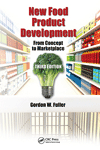Evolving private-label products appeal to consumers
An expert from strategy consulting firm EY-Parthenon outlines PL trends and opportunities.

Courtesy of the Private Label Manufacturers Association
Decades ago, shoppers could choose between name-brand snacks and bakery items, or they could opt for “generic”—a small selection of products in bare-bones packaging designed to give budget-minded consumers a low-cost (and often low-quality) option. Today, though, private-label offerings in the snack and bakery sections (and all across the store) offer a much wider variety of choices and higher level of quality.
At the 2024 Private Label Manufacturers Association (PLMA) Private Label Trade Show (scheduled November 17‒19 in suburban Chicago), hundreds of companies will showcase their products for retailers to add to their PL offerings. In addition to baked goods and snack products, the aisles will feature dozens of other categories in food, beverage, personal care, spirits, and more. To explore some key trends around private-label products (particularly snack and bakery items), Snack Food & Wholesale Bakery checked in with Nichole Jones (principal, strategy, and transactions with EY-Parthenon).
Jenni Spinner: Could you please tell me a bit about yourself, your career, and what you enjoy most about having your finger on the pulse of retail (and, more specifically, private label trends)?
Nichole Jones: I've spent over 20 years in retail and consumer strategy, beginning in merchandising before transitioning into consulting, where I am currently principal, strategy and transactions at EY-Parthenon. What excites me most about the retail industry is the evolution of consumer preferences. In my work with Fortune 500 retailers and startups, it has been particularly exciting to witness private-label products reshape the competitive landscape by offering innovative and quality alternatives.
JS: Could you please talk about the evolution of private-label snack and bakery over the years? As you put it, the days of buying PL or “generic” products just to save a few pennies are long gone.
NJ: Private labels have moved beyond solely offering basic, low-cost alternatives. Today, retailers are creating exciting, high-quality private-label snacks and bakery items to directly compete with national brands. Consumers no longer view these products as budget choices but as quality options with great value, which earns retailers trust and loyalty across industries. This shift is particularly evident within the food sector, with the EY Future Consumer Index finding that 64% of consumers are willing to purchase private-label packaged food and 63% are willing to purchase fresh food that’s private label.
JS: Let’s dive a little deeper into consumer behaviors and preferences around PL products—how are their approaches and attitudes to PL buying different now than they were in days of yore?
NJ: Consumers are now far more open to private-label products, valuing them for both price and quality. In fact, 66% of consumers feel that private labels meet their needs just as well as branded products, and they are increasingly choosing these items for the experience and satisfaction they provide, not just for cost savings. EY data also found that 59% of consumers say private label products are increasingly offering better quality, showing that increased investments by retailers are paying off and visible to consumers. Younger shoppers in particular are choosing private labels, believing the products address needs and preferences better than brands.
JS: What’s fascinating (to me, at least) is Gen Z’s attitudes toward PL products As EY’s determined, they’re keen on putting PL items in their carts—more so than other demographics. Could you please talk about their fondness for PL, and (when they’re considering a PL buy) what they’re looking for?
NJ: Gen Z has grown up with retailers that offer strong private label brands, and their openness to experimenting with these products is significant & increasing. In fact, 56% of Gen Z grocery shoppers are "extremely likely or likely" to experiment with private label brands. Gen Z is looking for quality, value, and a brand story that resonates with their values – whether that’s sustainability, authenticity, or transparency – making them more likely to choose private labels over national brands when the product aligns with their preferences.
JS: How have retailers’ approaches to building PL brands (across the store, but especially in snack, bakery, and other food aisles) evolved over the years? In what ways are they working to compete with the name brands, build loyalty/reputation, etc.?
NJ: Retailers have become more sophisticated in building private label portfolios, treating them as can’t-miss aspects of their overall brand strategy. They've invested in product development, packaging, and marketing to position these products as competitive with brands. Many retailers now use private labels as a way to differentiate themselves, and by building strong portfolios they are able to compete on brand identity and consumer loyalty.
JS: One of the reasons it’s always fun talking about PL is the constant shifting in consumer behaviors and preferences for such items. However, one proviso is that the constantly changing landscape makes it a challenge for retailers and their PL partners. Can you please talk about how retailers can successfully manage their PL offerings across the store, particularly snacks and baked goodies, to increase their chances for success?
NJ: To successfully manage private label offerings, retailers need to take a holistic, data-driven approach. Advancements in AI and predictive analytics are critical for retailers to track consumer preferences and optimize store-level assortment. Retailers should consistently review product performance, refine assortments, and align their strategy with these preferences. Categories leading private label growth include packaged food (+85%), personal care (+69%), beauty & cosmetics (+118%), and non-alcoholic beverages (+61%). Retailers who focus on product innovation, offer compelling value, and ensure consistency in quality across their private-label offerings, particularly in popular categories like snacks and baked goods, will be well-positioned to keep consumers engaged and coming back.
JS: Do you have any advice for retailers and their PL production partners before we sign off?
NJ: Retailers and their private label production partners must focus on collaboration and continuous innovation. Staying ahead of consumer trends through data analytics and investing in R&D is essential to leading the charge in the private label transformation. They should also prioritize agility—being able to quickly test, learn, and scale new product ideas can create a competitive edge. Strong partnerships with production partners are key to maintaining product quality and ensuring a smooth go-to-market execution. Success in the private label realm lies in balancing consumer needs with operational excellence.
Related: PLMA private-label trade show returns to Chicago suburbs
Looking for a reprint of this article?
From high-res PDFs to custom plaques, order your copy today!










